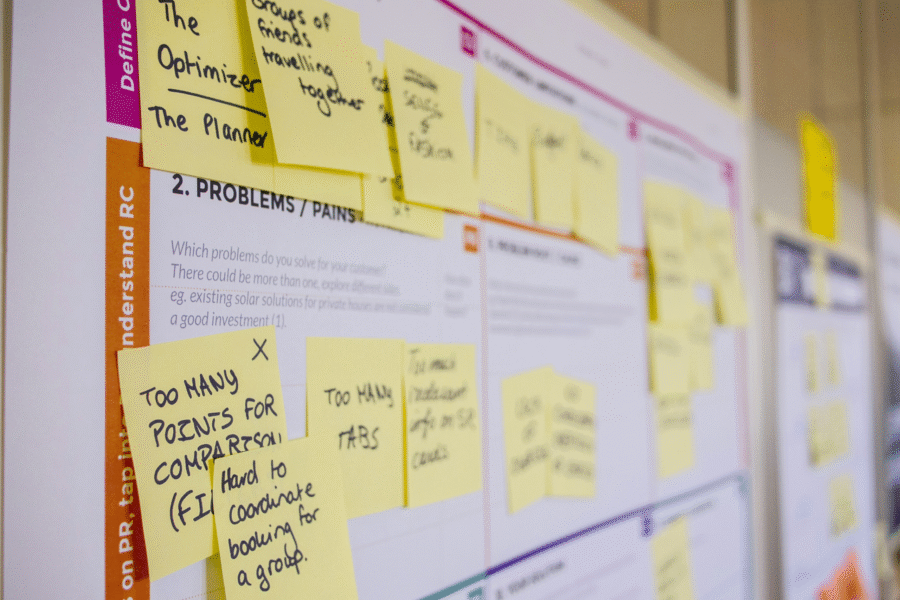At Proteus we work closely with leading engineering consultancies engaged in energy sector projects across the world as well as in the UK. In this rapidly evolving landscape, we can see the energy industry is undergoing significant transformations driven by advancements in technology, policy changes, and the urgent need for sustainable solutions.
In this article, we’ll delve into three key predictions that could shape the future of engineering consultancies in the energy sector by 2025. These 2025 predictions will help firms increase profitability, improve performance, and secure more business in a competitive market.
Prediction 1: Embracing Digital Transformation
When we launched Proteus as an MVP in 2019, digital transformation was something companies discussed rather than wholeheartedly embraced. Digital transformation is no longer an option but a necessity for engineering consultancies working on energy projects. By 2025, companies that invest in digital technologies such as AI, IoT, and big data will likely outperform those that don’t. Here’s why:
Enhanced Data Analytics
The adoption of advanced data analytics will enable consultancies to make more informed decisions. By harnessing the power of big data, companies can optimize project management, predict equipment failures, and enhance energy efficiency. This not only improves performance but also reduces costs, leading to increased profitability.
Improved Project Management
Digital tools will revolutionize project management practices. Cloud-based platforms, for instance, facilitate real-time collaboration among team members, regardless of their location. This ensures seamless communication, faster decision-making, and better project outcomes. As a result, engineering consultancies can deliver projects on time and within budget, enhancing client satisfaction and boosting their chances to win more business.
AI and Machine Learning Integration
AI and machine learning will play a pivotal role in automating routine tasks and identifying opportunities for innovation. By 2025, engineering consultancies that leverage these technologies will be able to streamline operations, reduce human error, and focus on high-value activities. This will ultimately lead to better project outcomes and a stronger competitive edge in the energy sector.
Prediction 2: Focus on Sustainable Solutions
As environmental concerns continue to rise, the demand for sustainable energy solutions is expected to grow exponentially. We have always strongly felt a solution like Proteus can play a significant role in helping companies reach their sustainability goals. By 2025, engineering consultancies that prioritize sustainability will be better positioned to thrive in the energy sector.
Renewable Energy Integration
The UK government has set ambitious targets for renewable energy adoption. Engineering consultancies will need to focus on integrating renewable energy sources such as wind, solar, and hydroelectric power into their projects. This shift not only aligns with government policies but also meets the growing consumer demand for cleaner energy alternatives.
Energy Efficiency Initiatives
Improving energy efficiency will be a top priority for engineering consultancies. By implementing cutting-edge technologies and innovative design practices, firms can help clients reduce their carbon footprint and operational costs. This not only enhances the consultancy’s reputation but also attracts environmentally conscious clients.
Carbon Neutrality Goals
By 2025, many organizations will aim to achieve carbon neutrality. Engineering consultancies can support clients in reaching these goals by offering expertise in carbon reduction strategies and sustainable project planning. This will not only expand the consultancy’s service offerings but also position them as leaders in the energy sector.
Prediction 3: Strengthening Client Relationships
In a competitive market, building strong client relationships will be crucial for engineering consultancies to win more business and improve performance. Using a project software tool like Proteus that facilitates accurate and well-controlled workflows is no longer a ‘nice to have’ for consultancies of any size. By 2025, firms that prioritize client engagement and trust-building will likely see greater success.
Transparent Communication
Open and honest communication is essential for building trust with clients. Engineering consultancies should focus on providing transparent updates on project progress, challenges, and successes. This fosters a collaborative environment and strengthens client relationships, increasing the likelihood of repeat business and referrals.
Customized Solutions
Every client has unique needs and preferences. By offering tailored solutions that address specific client requirements, engineering consultancies can demonstrate their commitment to delivering exceptional service. This personalized approach not only enhances client satisfaction but also sets the consultancy apart from competitors.
Proactive Problem Solving
Being proactive in identifying and addressing potential issues is key to maintaining strong client relationships. Engineering consultancies should adopt a proactive problem-solving approach, anticipating challenges and offering solutions before they escalate. This demonstrates the consultancy’s expertise and reliability, enhancing client trust and loyalty.
Conclusion
Whilst these 2025 predictions will not come as a surprise to many: in January 2022 we made similar predictions. However, their importance cannot be understated. The energy sector in the UK is poised for significant changes by 2025, and engineering consultancies must adapt to stay ahead. By embracing digital transformation, focusing on sustainable solutions, and strengthening client relationships, firms can increase profitability, improve performance, and win more business. As the industry continues to evolve, engineering consultancies that proactively respond to these trends will be well-positioned for success in the years to come.
About Proteus
Proteus developed by a Scottish-based tech company, Xergy Group, is an end-to-end project management solution developed for the energy and engineering consulting industries.
Proteus is industry-proven and enables consultancies to meet project demands across the full lifecycle, from proposal development to project delivery. With robust sales and project delivery modules, Proteus helps its customers win more business, increase efficiencies, manage expenditures, and improve project controls.
Critical workflows, automation, and controls are integrated into Proteus. These include opportunity evaluation, proposal building, resource planning, budget tracking and forecasting, real-time multi-level restricted dashboards, and project performance analytics.
Third-party integrations and customised solutions allow Proteus’ users, which include C-suite, project leads, and engineers, to get the exact software solution needed for their business.
We offer a free onboarding consultation service to ensure your company account is set up to your company’s needs.
How to get Proteus
Proteus operates under a software-as-a-service (SaaS) model. We offer Enterprise packages and flexible pricing solutions: contact our team to learn more.
We designed Proteus to be simple, and that means you can get up and running on Proteus without an IT team or support from a programmer. You will want to spend a bit of time configuring the admin console so that you have everything set up to suit your company structure, but it’s very intuitive and you don’t need a PhD in IT.
However, we want you to get the best out of what is a brilliantly powerful tool, so don’t hesitate to ask for our support. We have a team of product experts who are ready to help you with the configuration process, so get in touch today by filling out the form below:



